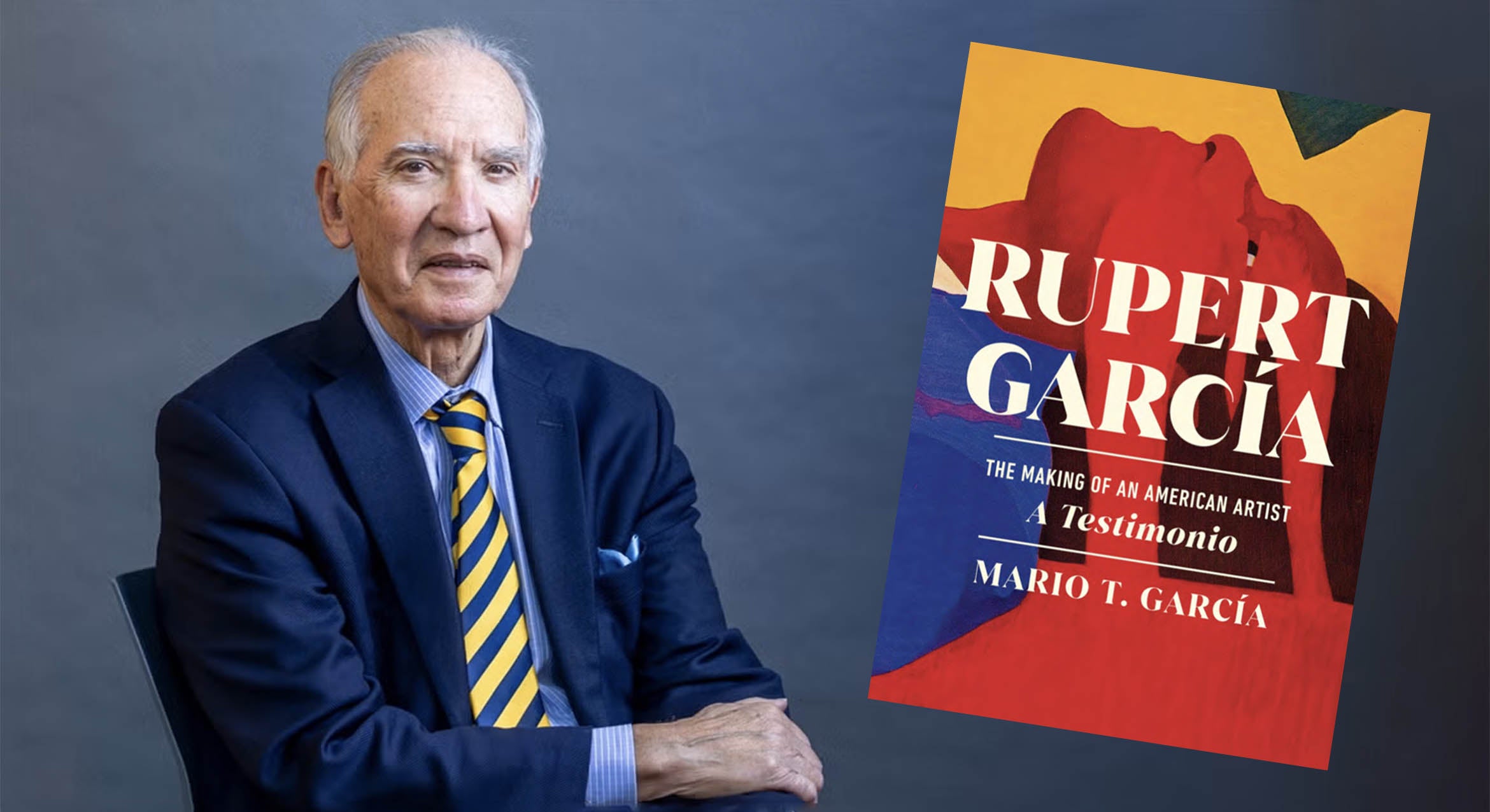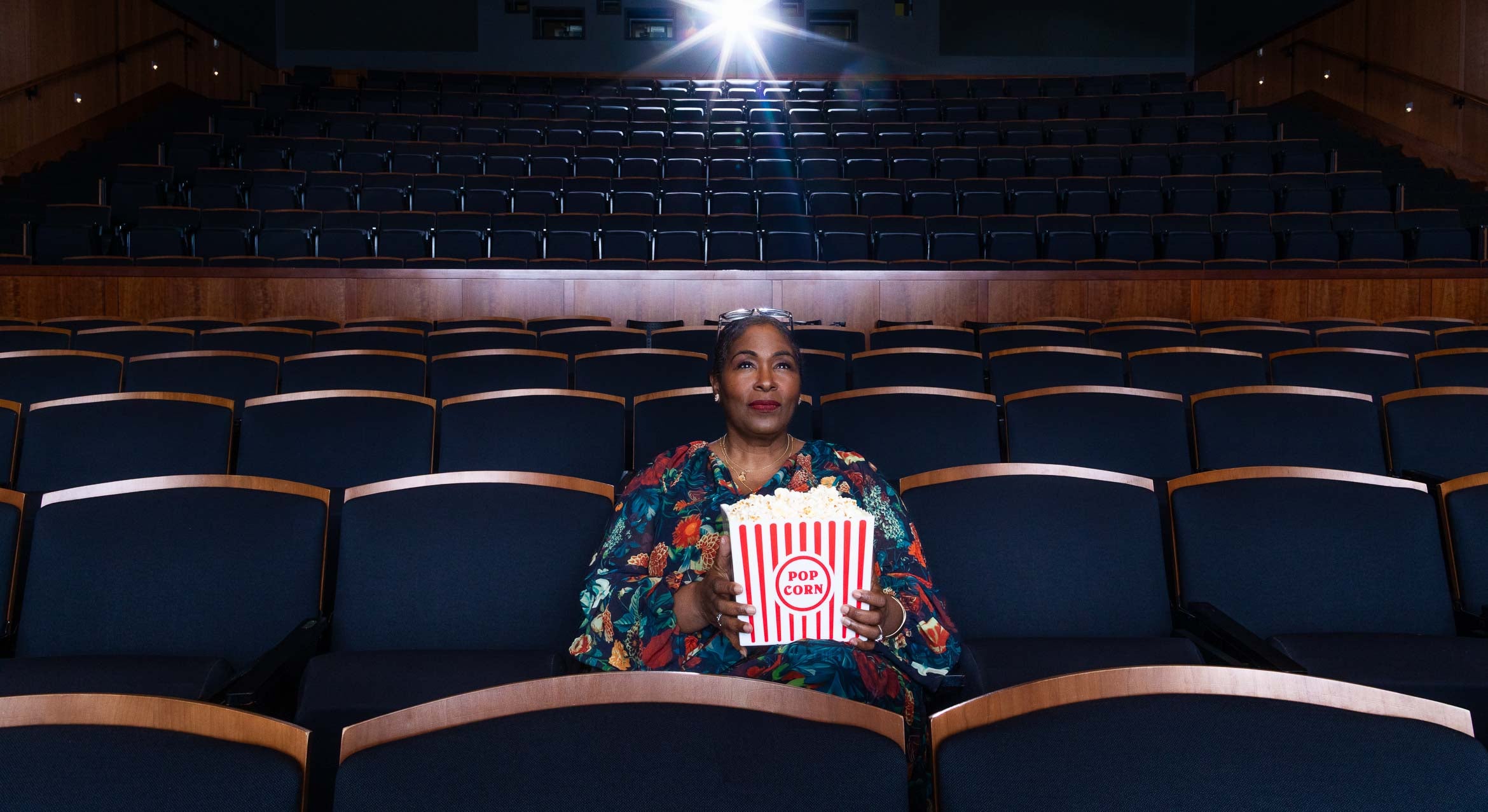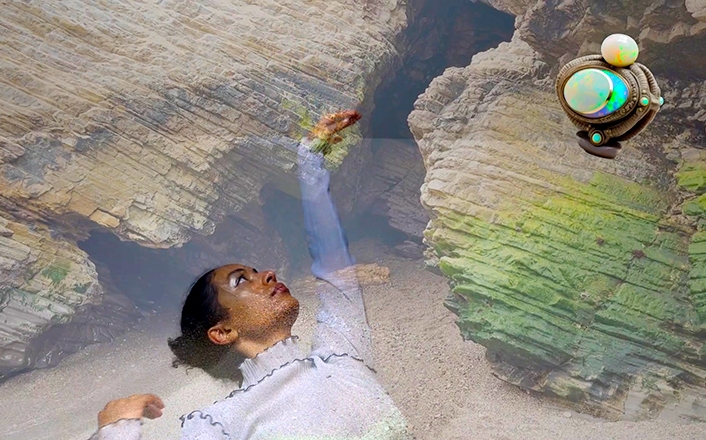
Artists in the Master of Fine Arts program will present their thesis projects at the Art, Architecture & Design Museum, May 17–June 9. The show’s theme, “Incandescent,” references Michel Serres and an emphasis on the interconnectedness of humans and nature, and their shared unfolding history. Participating artists are Panteha Abareshi, Diego Melgoza Oceguera, Dannah Mari Hidalgo, Hope Okere, Lyra Purugganan, Mariana Rodela and Lela Shahrzad Welch.
“Over the course of their studies at UCSB, the Department of Art’s 2024 Master of Fine Arts thesis class have developed bodies of work that reify and undermine contemporary discourses around place and displacement,” said Alex Lukas, the graduate program advisor. “Created on our bucolic landscape during a time of global tumult, the lens of ‘Incandescent’ explores both the large and the small, focusing on global diasporic histories alongside interrogations of our own campus traditions.”
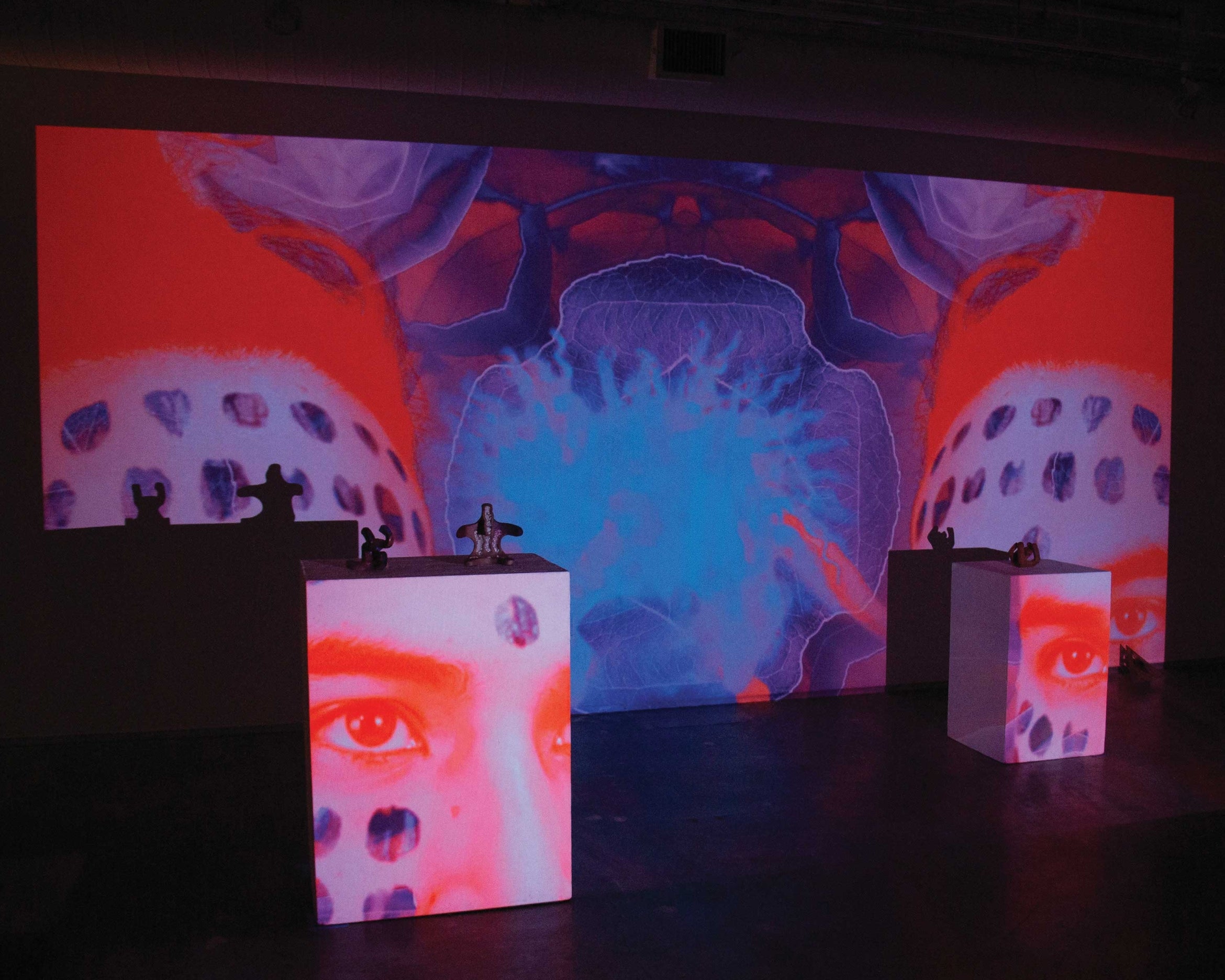
The show features a wide range of art practices including painting, video, performance and sculpture. “The thesis exhibition presents research that is on the cutting edge of contemporary artistic discourses that center identity, place, politics and poetics,” Lukas added. Despite artists having different backgrounds, including from Mexico, Nigeria, Iran and the Philippines, they said they have found common ground in the power of art.
“Despite the relentless cycle of global conflicts, colonization, erasure and human rights violations, questions linger on our minds: who are we making art for, why does art matter when unconscionable suffering occurs, and how can we challenge and dismantle hegemonic and oppressive systems through the act of making?” the artists state in their exhibition text.
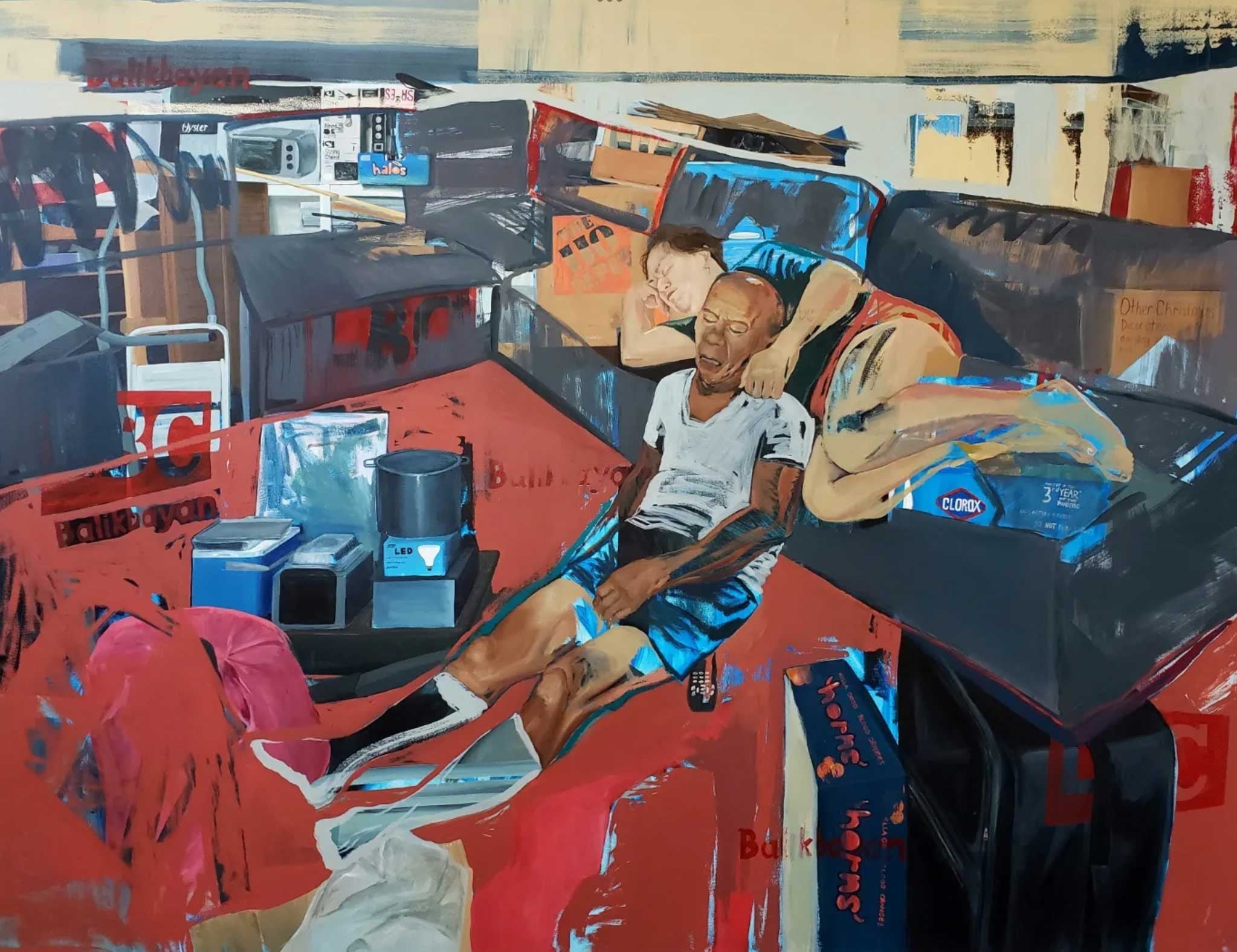
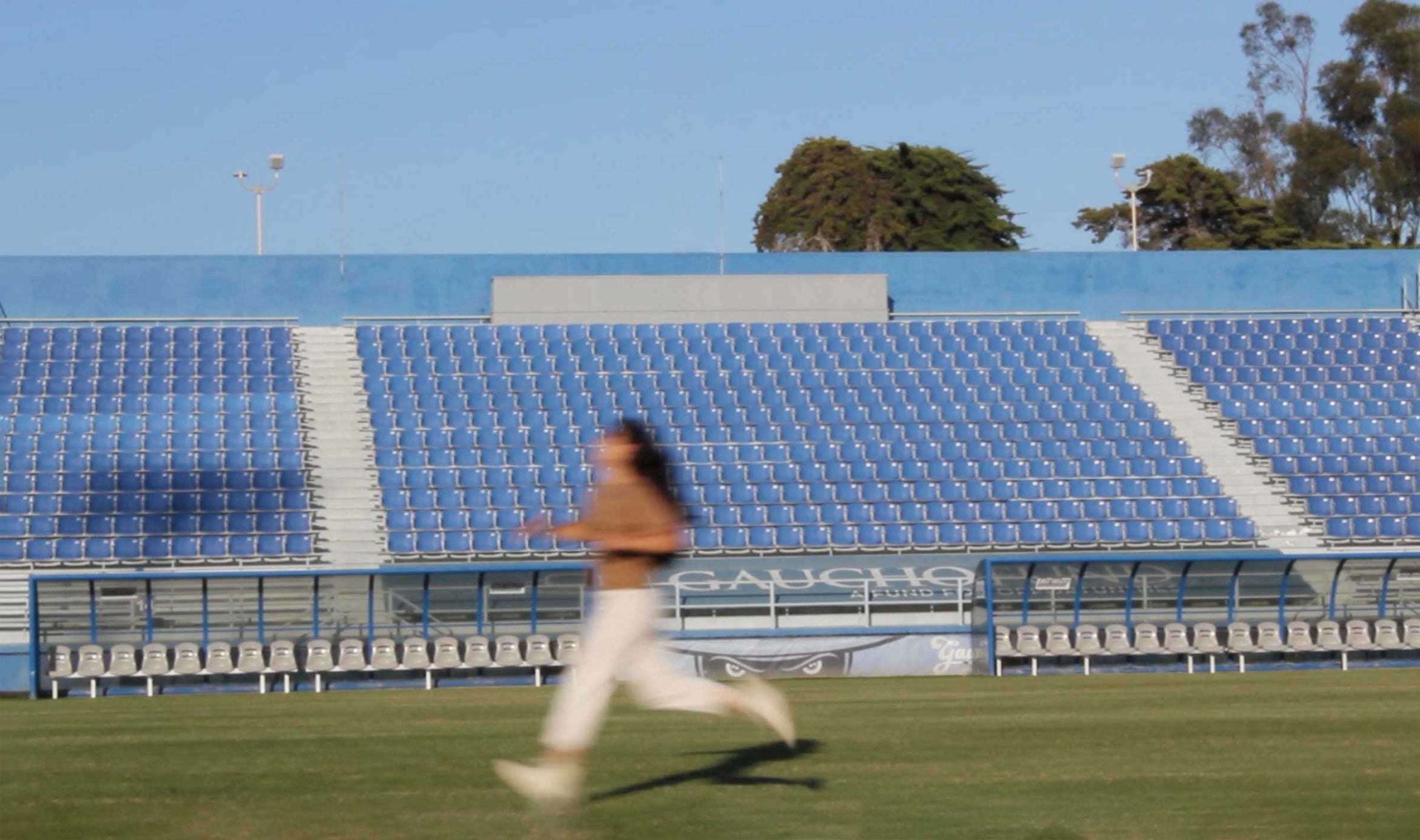
“Though art alone cannot fully resolve these issues, it possesses the power to ignite hearts, spark discourse, and amplify visibility and compassion. As we create, we grapple with relentless exploitation, genocide, and struggles, like those unfolding across Palestine, Sudan, Congo, and the Democratic Republic of Congo. We continue to resist, protest, rally, and to cry out. We seek to understand how histories are lost, diasporas form, and how we empathetically mourn. From within us, this incandescent glow generates our art making, healing, and resistance.”
“The act of making can be a means of reclaiming and honoring ancestry, culture and identity. Across divergent practices ranging from sculpture to painting and performance, a luminous resistance emerges. This incandescence positions our work against dominant oppressive narratives, centering decolonization in the process.”
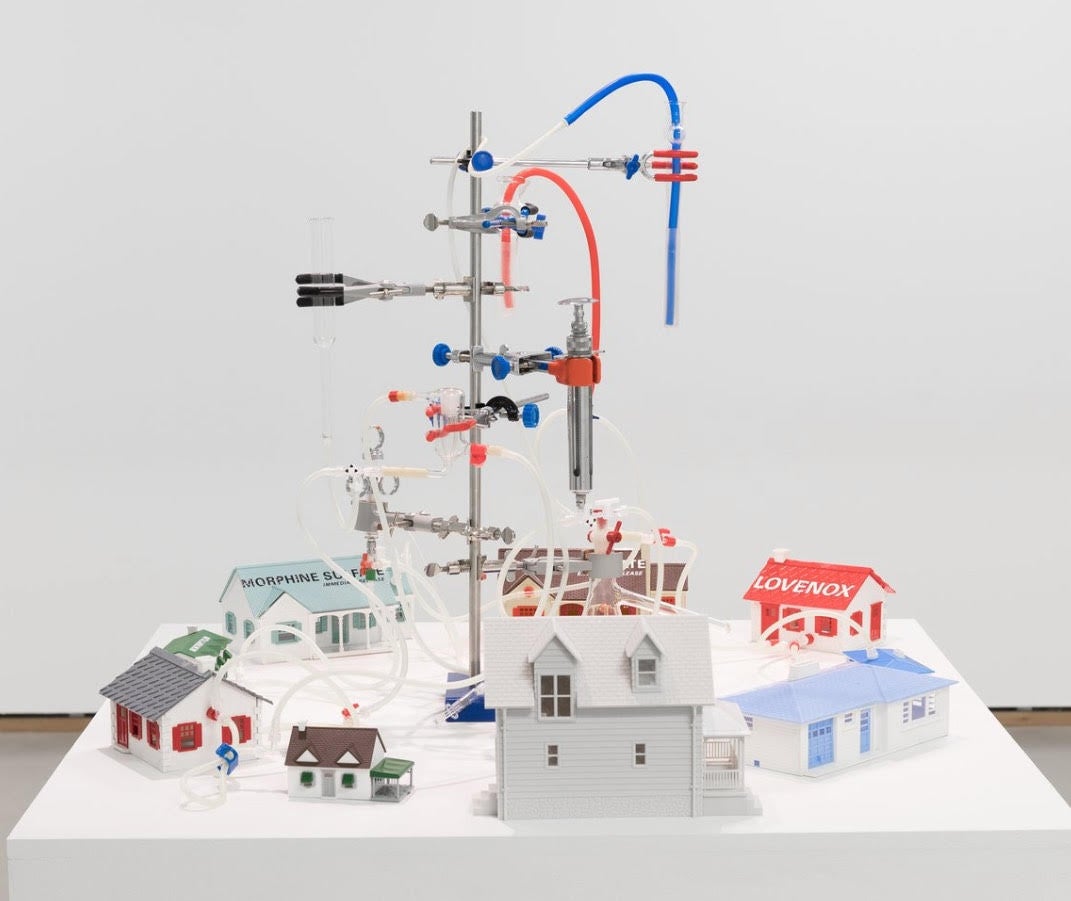
Inviting an examination of the sick/disabled subjectivity, Abareshi’s technicolor work provokes discomfort and examines how fetishization festers in imbalanced power dynamics. Informed by immediate surroundings and experiences, Hidalgo’s work reconciles the familial and communal space with individuality, personal pursuits and desires. Melgoza Oceguera, who goes by “Melgo,” portrays familial stories and personal narratives that reclaim identity through a pluriversal perspective in his multi-media practice.
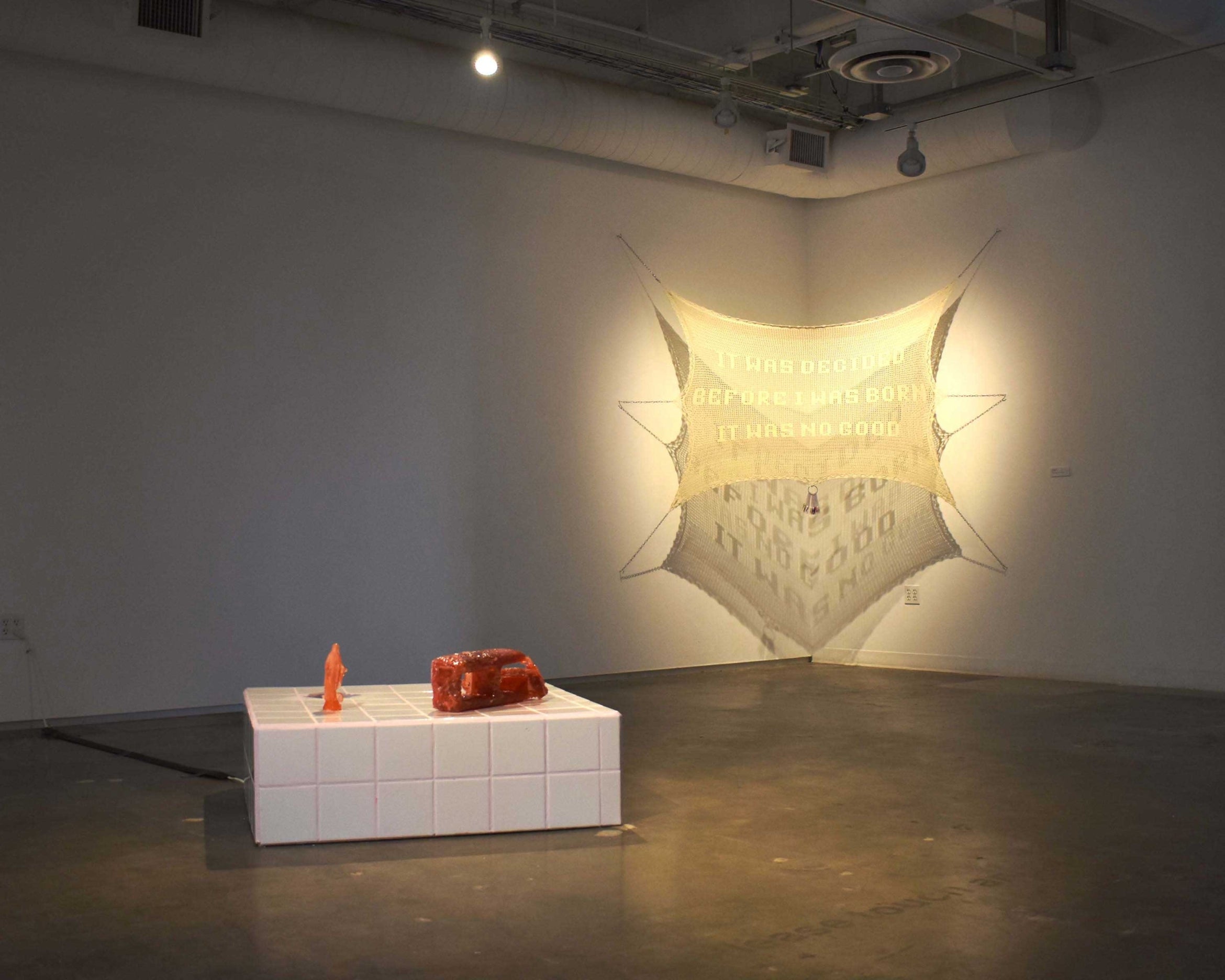
Interdisciplinary artist Okere invites viewers to become immersed in diasporic hybridity and translations of Yoruba and Igbo Nigerian culture through movement and sculpture. Okere will perform her piece “movement:::Water / movement:::Support” in the Red Barn Gallery (aka Old Gym) at UCSB on Saturday, June 1, at 8 p.m. (doors at 7:30 p.m.; the entrance to the gallery is facing the bus circle.) Okere will present immersive color field environments to explore identity, diaspora, modern dance and improvisation.
Purugganan’s work subverts dominant Western narratives through material disobedience, craft practices and installation. Rodela appropriates the soccer field as a platform to critique institutions, culture and capitalism,examining the spectacle of the sporting event and aspiring to create a universally neutral mascot. As a YouTube metallurgist, Shahrzad Welch embraces failure through sculpture, speculative fiction and time-based media to create (un)monuments of oral histories lost to addiction, war and migration.
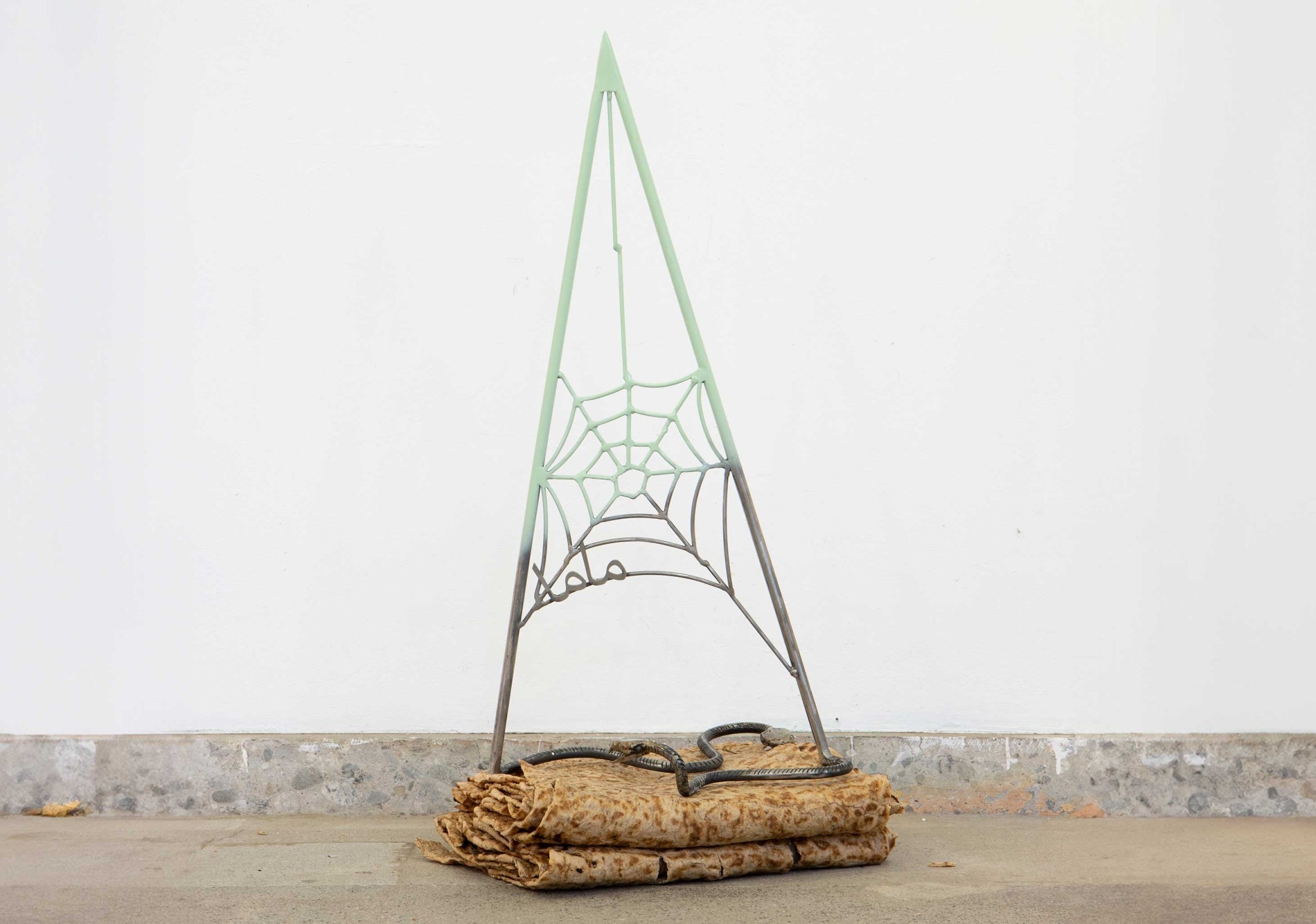
Debra Herrick
Associate Editorial Director
(805) 893-2191
debraherrick@ucsb.edu

